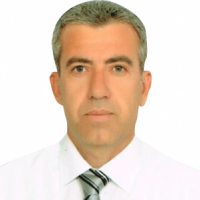-
Is Moscow Serious About Inviting Syria’s Kurds to Dialogue with Damascus?

The key points included in Lavrov's answer to a question regarding the future of the relationship between the Kurds and Assad regime were as follows. First, Lavrov implicitly accused the Kurds of embracing separatist inclinations at the behest of Washington. Second, he referred to the subordination of the Kurdish-led Syrian Democratic Forces (SDF) to Washington. Third, he pointed out that the Kurdish political and military forces are not serious about engaging in a dialogue with al-Assad regime.
Lavrov's words revealed the truth of the Russian position on the Kurdish issue in Syria, as well as on the solution of political transition in Damascus. These two issues are intertwined with each other and cannot be separated. The link between the two questions is the issue of democracy, pluralism, the new constitution, and the rule of law. In other words, the linkage between the two topics is the future and form of the political system in Syria, which, according to Moscow's visions, will be nothing but the rehabilitation of the Assad regime.
The Russian view on the Kurdish issue in Syria is not fundamentally different from the view of the Assad regime. The essence of the Russian stance is that the Kurds must acquiesce unconditionally to Assad's dictates. Lavrov also accused the Kurds of being linked to US agendas and plans as a repetition of the Assad regime's propaganda. Lavrov's statements made it clear that Moscow, like the Assad regime, has no intention of giving an ethnic or geopolitical character to the Kurdish issue in Syria. Instead, it believes that this problem can be resolved within the framework of some superficial and partial administrative and constitutional reforms.
Lavrov's announcement came in the wake of the recent summit between the Russian and American presidents in Geneva. That summit, which seems to have not reached any conclusion regarding the intractable Syrian catastrophe. Lavrov's stance also came after the meeting between the US and Turkish presidents in Brussels last month, which also seems to have failed to achieve any rapprochement on the thorny Syrian predicament. This explains Moscow's attempt to play the Kurdish card again, in a way that confuses US and Turkish policies in Syria.
Russia aims to negatively influence Washington's agenda in Syria by persuading the Kurds that dialogue with al-Assad regime is better for the Kurds than relying on Washington, which may withdraw from Syria at any moment. Throughout the Syrian crisis, Russia has always irritated Turkey with the Kurdish card in Syria, especially when relations between them were deteriorating. On the other hand, Russia has always blackmailed and frightened the Syrian Kurds by inciting Turkey against them.
Moscow is not serious about the talks between the Kurds and the Syrian regime. The reason is that Moscow does not have a clear vision regarding the solution of the Kurdish issue in Syria. It, also, does not have an intention or plan to solve the dilemma of political solution in Syria in accordance with Security Council Resolution No. 2254. Russia seeks only to use the Kurdish card in Syria by disturbing other players involved in the Syrian stalemate to serve its own policies based on power and hegemony. levant
by: Jwan Dibo levant

You May Also Like
Popular Posts
Caricature
BENEFIT Sponsors BuildHer...
- April 23, 2025
BENEFIT, the Kingdom’s innovator and leading company in Fintech and electronic financial transactions service, has sponsored the BuildHer CityHack 2025 Hackathon, a two-day event spearheaded by the College of Engineering and Technology at the Royal University for Women (RUW).
Aimed at secondary school students, the event brought together a distinguished group of academic professionals and technology experts to mentor and inspire young participants.
More than 100 high school students from across the Kingdom of Bahrain took part in the hackathon, which featured an intensive programme of training workshops and hands-on sessions. These activities were tailored to enhance participants’ critical thinking, collaborative problem-solving, and team-building capabilities, while also encouraging the development of practical and sustainable solutions to contemporary challenges using modern technological tools.
BENEFIT’s Chief Executive Mr. Abdulwahed AlJanahi, commented: “Our support for this educational hackathon reflects our long-term strategic vision to nurture the talents of emerging national youth and empower the next generation of accomplished female leaders in technology. By fostering creativity and innovation, we aim to contribute meaningfully to Bahrain’s comprehensive development goals and align with the aspirations outlined in the Kingdom’s Vision 2030—an ambition in which BENEFIT plays a central role.”
Professor Riyadh Yousif Hamzah, President of the Royal University for Women, commented: “This initiative reflects our commitment to advancing women in STEM fields. We're cultivating a generation of creative, solution-driven female leaders who will drive national development. Our partnership with BENEFIT exemplifies the powerful synergy between academia and private sector in supporting educational innovation.”
Hanan Abdulla Hasan, Senior Manager, PR & Communication at BENEFIT, said: “We are honoured to collaborate with RUW in supporting this remarkable technology-focused event. It highlights our commitment to social responsibility, and our ongoing efforts to enhance the digital and innovation capabilities of young Bahraini women and foster their ability to harness technological tools in the service of a smarter, more sustainable future.”
For his part, Dr. Humam ElAgha, Acting Dean of the College of Engineering and Technology at the University, said: “BuildHer CityHack 2025 embodies our hands-on approach to education. By tackling real-world problems through creative thinking and sustainable solutions, we're preparing women to thrive in the knowledge economy – a cornerstone of the University's vision.”
opinion
Report
ads
Newsletter
Subscribe to our mailing list to get the new updates!






















